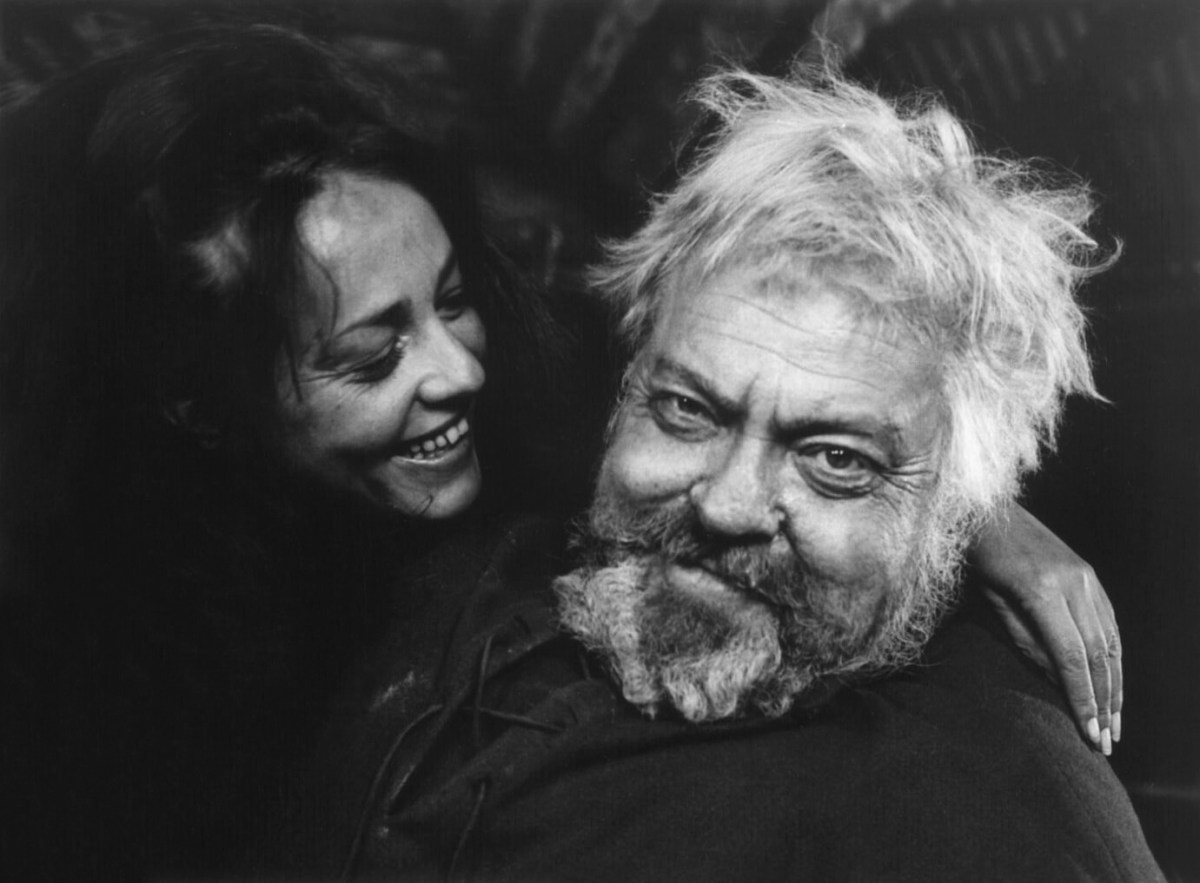‘Chimes at Midnight’ In Steven Soderbergh’s book “Getting Away With It,” “A Hard Day’s Night” director Richard Lester recalls a story from when he was on the jury at the 1966 Cannes Film Festival. The latest from Orson Welles — the Shakespeare film “Chimes at Midnight,” revolving around portly gourmand Falstaff — was there and, as Lester tells it, he was all but “guaranteed the top award if he showed up.” Like a lot of the jury, Lester wasn’t entirely taken with it, and when word of that spread he found himself summoned up to a hotel room with Welles and his producer, Harry Saltzman. Saltzman cornered Lester and told him, in CIA-level menacing tones, they were “counting on him.” RELATED: Review: “Pierrot le fou” is still Jean-Luc Godard’s best film They couldn’t count on him. “Chimes at Midnight” lost to both Pietro Germi’s forgotten Italian sex comedy “Signore & Signori” and Claude Lelouch’s trendy romance “A Man and a Woman.” Instead it netted the “Technical Grand Prize” — effectively a thanks-for-your-years-of-service gold watch version of a trophy. In other words, “Chimes at Midnight” was seen as a bloated piece of hubris, if not a relic from a bygone era. Reviews at the time weren’t kind, with the expected kiss-of-death from now-notorious New York Times critic Bosley Crowther, and a mostly expected defense from Andrew Sarris. “I firmly believe that the massive passions of ‘Chimes at Midnight’ will long outlive the miniature pageantries of ‘A Man for All Seasons,’” Sarris wrote at the time. Sarris was right, sort of. While “A Man for All Seasons” is today gilded as an eat-your-vegetables Oscar gobbler, “Chimes” ranks in the upper echelon of Welles, if not right at the top — but only by the few who’ve seen it. Rights issues have plagued its home video release, as is to be expected given it’s one of many post-Hollywood Welleses to have been cobbled together from dodgy international financing. For “Chimes” he convinced Spanish backers to give him a relatively low budget, in part by telling a lie about making a “Treasure Island” movie with some of the same sets. (It never happened, of course, but Welles did play Long John Silver in a 1972 film version he co-wrote under the pseudonym “O.W. Jeeves,” named in honor of P.G. Wodehouse.) RELATED: Review: The new “Macbeth” is another bleak take on “The Scottish Play” The appearance of a sanctioned and cleaned-up “Chimes at Midnight” is thus a huge deal, but it’s far from the slick, obvious masterpiece of “Citizen Kane,” or even the compromised “Magnificent Ambersons,” or even the reconstructed-after-the-fact “Touch of Evil.” It’s a manic, sometimes messy work, and not even considering it’s a patchwork of bits from five separate plays, plus some additional material from other works and bits by Welles himself, which Welles had been cobbling together since the 1939 play “Five Kings.” He was pasting together all the bits with Falstaff, chiefly him helping future King Prince Hal live the grotty life before he assumes the throne. Part of his reasons was his love for Falstaff, whom he called “the greatest conception of a good man.” Then there was the fact that Welles not only wanted to play him but was essentially, over the decades since his heyday, becoming him. As his relationship with Hollywood frayed, he became an outsider; he liked to say that when he couldn’t make films, he’d eat. By the 1960s he had swollen to Falstaff weight, and adopted the same love for old standards that had, by then, been replaced by the new. The depth of feeling for Falstaff is evident in every inch of “Chimes at Midnight,” which opens with him and a friend lamenting bittersweetly for by good times that were now fuzzy memories. Not that anyone could call “Chimes at Midnight” old-fashioned. Far from a stodgy, stubborn throwback, it’s a film as forward-thinking as was “Kane,” and later “F for Fake” and the aborted “The Other Side of the Wind.” Welles was always trying to find new directions for the movies, and “Chimes” was no different. Its fast pace and hyper-cutting may have been a necessity to cover up a fairly puny budget, but it’s speedy even for the era, and even for now. Welles jammed shots together, creating a flurry through a combination of performance and editing. Where a director like Laurence Olivier would let you savor the text and the language, Welles wanted you to delight in the sounds and rhythms — the sheer density of words comin’ at ya. RELATED: Review: “45 Years” shows that longtime relationships are terrifying Parsing plot isn’t always easy in “Chimes,” no less because the viewer must be familiar with five separate plays. But the shape is clear, and gutting. The first hour delights in Prince Hal’s freedom, having jilted his King father (John Gielgud) to stew among the lower castes. Midway comes the Battle of Shrewsbury, which changes the tone and definitely changes Hal, who soon finds it easy to forsake his old ways for the regal, even if that means coldly banishing Falstaff. And the battle is traumatizing. Welles only had 180 extras, a limitation that may have made it what it is. Foggy, dirty and brutal, it’s a battering ram of blink-and-miss-it images of carnage — close-ups of soldiers clashing sloppily, ultimately reduced to bodies caked together in mud and blackened blood. With this set piece alone “Chimes” would be one for the ages; no battle scene looked like that before, but plenty have looked like it since. That’s not to say that older films are only relevant if they’ve been copied by today’s filmmakers. But there’s much else to nick from “Chimes” that hasn’t been nicked yet, more ways that Welles’ progressive ideas can inspire new and fruitful avenues for cinema from now into the infinite. Today we have an epidemic of big directors throwing their lowest-grossing, least-liked films under the bus: Quentin Tarantino hates “Death Proof,” David O. Russell “I Heart Huckabees.” (Both films are among each filmmaker’s finest works, we think.) But Welles stuck with “Chimes,” calling it, in 1982, his favorite, and the one, he felt, that would get him into heaven. He wasn’t wrong.
Director: Orson Welles
Stars: Orson Welles, Keith Baxter
Rating: NR
5 (out of 5) Globes
‘Chimes at Midnight’ is the Orson Welles masterpiece you’ve never seen

Janus Films
Follow Matt Prigge on Twitter @mattprigge


















